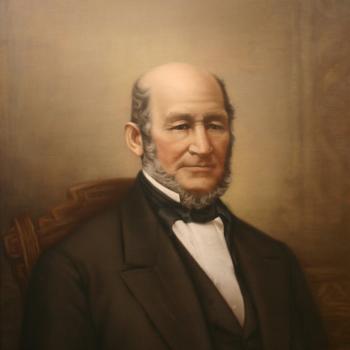
This week I stumbled upon some new vocabulary words. I have a degree in English, but I was taken-aback by how many names for common, everyday things I didn’t know. Take rasceta, for example. I guessed that it was a skin disease, but I was wrong. It’s the name for the crease lines on the inside of our wrists. Or how about a box tent. Sounds like camping gear to me, but it’s really the little plastic table-looking thingy in the middle of a pizza box that keeps the top from smooshing the pizza. And what about peen? That one sounds to me like the past perfect tense of a bodily function, but no. It’s actually the claw-like thing on a hammer opposite the side that strikes the nail. Who knew?
Did you brush your teeth this morning with just a tiny bit of toothpaste? Then you put only a nurdle on your brush. C’mon, that one just sounds silly. When you got dressed, did you tuck the last bit of your belt into that loop that keeps it in place? Then you made good use of the belt’s keeper. At least that one sounds reasonable. Maybe after that you tied your shoelaces and wondered what the plastic coating at the end is called. Wonder no more – it’s an aglet. Once dressed and on your way to work this morning, did you hit the drive-through to buy a hot cup of joe? Hopefully, it came with a zarf, the little cardboard sleeve that makes a hot beverage easier to hold.
Who makes up these terms? I want that job.
What does that have to do with this Sunday?
The Church always celebrates the Solemnity of the Assumption of Mary, a holy day of obligation in the Catholic Church, on August 15. Usually, the gospel reading is from Luke 1 about the angel Gabriel coming to Mary, telling her not to be afraid, and giving her some you’ve-gotta-be-kidding kind of news about a virgin birth. But this year, the feast falls on a Sunday, and the short “vigil” is used. “While [Jesus] was speaking, a woman from the crowd called out and said to him, ‘Blessed is the womb that carried you and the breasts at which you nursed. He replied, ‘Rather, blessed are those who hear the word of God and observe it’” (11: 27-28).
Now, that term is a lot trickier than any nurdle or zarf. Literally, the “word of God” is a phrase that points to how God “speaks” to us. The Jews of Jesus’ time and long before thought of the Hebrew Scriptures as the “word of God.” Given that, what Jesus does here is beyond shocking. He implies that that HIS words, HIS teachings are also the “word of God” on par with the Bible. Certainly, this would have astonished his audience. Here is this guy many have known since childhood. The carpenter’s son, who they watched grow up, is now suggesting that his words are from God. It’s no wonder Jesus’ enemies thought him guilty of blasphemy.
Pushing the envelop
But he doesn’t stop there. Evidently, the woman in the crowd found Jesus’ message to be so transformative that she felt moved to make a strong declaration. She professed that God must have blessed Jesus’ mother in a special way by God. (And, by the way, that’s what celebrating Mary on the Feast of the Assumption is all about). But Jesus completely turns the tables. In effect, he says, “No, my mother has nothing on you. God blesses those who hear my message and live accordingly.” This Sunday, instead of a gospel passage that glorifies Mary, we hear Jesus say that anyone who lives by his words is the one who is truly blessed. Mind. Blown.
Unfortunately, the staggeringly beautiful truth about Jesus as “word of God” has become confused at best and weaponized at worst. Originally, acknowledging Jesus as the “word of God” meant that his sacred message, when taken to heart, led to the fulness of life in God. Over the centuries though, acknowledging Jesus as the “word of God” came to mean professing agreement with specific statements of belief. In a way, the goal posts shifted over time. Instead of the gospel being an invitation to “follow” Jesus, it became a command to “believe in” Jesus.
Not quite the same thing
For many, this may be a distinction without a difference. But personally, I like being invited to follow Jesus’ teachings far more than being directed to profess my assent to a list of belief statements. As I’ve written before, it seems like the difference between faith that acts like a guiding compass and belief that acts like the commanding, turn-by-turn, instruction from on the GPS.
What’s in a name? Entire universes of meaning.
I could go my whole life without knowing that purlicue is the word for the distance between my thumb and index finger when I stretch out my hand or that wamble is a synonym for the sounds my stomach make when I’m hungry. I’ll be perfectly fine if I fail to remember that mutin is the name for the strip that separates widow panes or that unreadable handwriting is also known as griffonage. But what we mean when we call Jesus “the word of God” is something worth being clear on.















